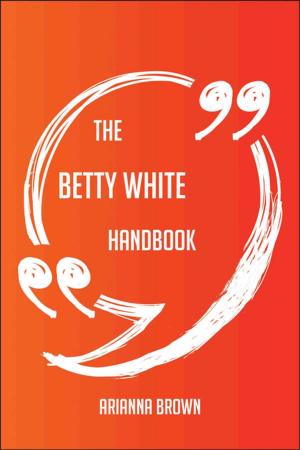| Author: | John Joshua | ISBN: | 9781486427802 |
| Publisher: | Emereo Publishing | Publication: | October 24, 2012 |
| Imprint: | Emereo Publishing | Language: | English |
| Author: | John Joshua |
| ISBN: | 9781486427802 |
| Publisher: | Emereo Publishing |
| Publication: | October 24, 2012 |
| Imprint: | Emereo Publishing |
| Language: | English |
Here's part of the content - you would like to know it all? Delve into this book today!..... : After a Republican victory, but before the new administration took office on March 4, 1861, seven cotton states declared their secession and joined to form the Confederate States of America.
...Buchanan said that the Dred Scott decision was proof that the South had no reason for secession, and that the Union was intended to be perpetual, but that the power by force of arms to compel a State to remain in the Union was not among the enumerated powers granted to Congress.
...The rest make no mention of the slavery issue, and are often brief announcements of the dissolution of ties by the legislatures, however at least four states - South Carolina, Mississippi, Georgia, and Texas - also passed lengthy and detailed explanations of their causes for secession, all of which laid the blame squarely on the influence over the northern states of the movement to abolish slavery, something regarded as a Constitutional right by the slaveholding states.
...President Buchanan protested seizure of Federal property, but made no military response apart from a failed attempt to resupply Fort Sumter using the ship Star of the West, which was fired upon by South Carolina forces and turned back before it reached the fort.
There is absolutely nothing that isn't thoroughly covered in the book. It is straightforward, and does an excellent job of explaining all about American Civil War in key topics and material. There is no reason to invest in any other materials to learn about American Civil War. You'll understand it all.
Inside the Guide: American Civil War, Battle of Fort Donelson, Battle of Five Forks, Battle of Cold Harbor, Battle of Chickamauga, Battle of Chancellorsville, Battle of Cedar Creek, Battle of Blair Mountain, Battle of Atlanta, Battle of Antietam, Baltimore riot of 1861, Bald Hills War, Bahamas in the American Civil War, Australia and the American Civil War, Attrition warfare, Atlanta Campaign, Atlanta, Army of the Potomac, Army of Virginia, Army of Northern Virginia, Arkansas in the American Civil War, Arkansas, Arizona Territory (Confederate States of America), Architecture of the United States, Appomattox Court House National Historical Park, Appomattox Campaign, Appomattox, Virginia, Anti-Americanism, Antebellum South Carolina, Andrew Johnson, Andrew Jackson, Andrew Hull Foote, Andersonville National Historic Site, Andersonville (film), Anaconda Plan, An Occurrence at Owl Creek Bridge (film), Americans, American literature, American Indian Wars, American English, American Civil War spies, American Civil War reenactment, American Civil War bibliography, American Civil War Corps Badges, Ambrose Burnside, Allan Pinkerton, Allan Nevins, Alexander H. Stephens, Albert Sidney Johnston, Alabama in the American Civil War, Alabama Claims, Alabama, Agriculture in the United States, African Slave Trade Patrol, African-American history, Abraham Lincoln, Abolitionism, A. P. Hill
Here's part of the content - you would like to know it all? Delve into this book today!..... : After a Republican victory, but before the new administration took office on March 4, 1861, seven cotton states declared their secession and joined to form the Confederate States of America.
...Buchanan said that the Dred Scott decision was proof that the South had no reason for secession, and that the Union was intended to be perpetual, but that the power by force of arms to compel a State to remain in the Union was not among the enumerated powers granted to Congress.
...The rest make no mention of the slavery issue, and are often brief announcements of the dissolution of ties by the legislatures, however at least four states - South Carolina, Mississippi, Georgia, and Texas - also passed lengthy and detailed explanations of their causes for secession, all of which laid the blame squarely on the influence over the northern states of the movement to abolish slavery, something regarded as a Constitutional right by the slaveholding states.
...President Buchanan protested seizure of Federal property, but made no military response apart from a failed attempt to resupply Fort Sumter using the ship Star of the West, which was fired upon by South Carolina forces and turned back before it reached the fort.
There is absolutely nothing that isn't thoroughly covered in the book. It is straightforward, and does an excellent job of explaining all about American Civil War in key topics and material. There is no reason to invest in any other materials to learn about American Civil War. You'll understand it all.
Inside the Guide: American Civil War, Battle of Fort Donelson, Battle of Five Forks, Battle of Cold Harbor, Battle of Chickamauga, Battle of Chancellorsville, Battle of Cedar Creek, Battle of Blair Mountain, Battle of Atlanta, Battle of Antietam, Baltimore riot of 1861, Bald Hills War, Bahamas in the American Civil War, Australia and the American Civil War, Attrition warfare, Atlanta Campaign, Atlanta, Army of the Potomac, Army of Virginia, Army of Northern Virginia, Arkansas in the American Civil War, Arkansas, Arizona Territory (Confederate States of America), Architecture of the United States, Appomattox Court House National Historical Park, Appomattox Campaign, Appomattox, Virginia, Anti-Americanism, Antebellum South Carolina, Andrew Johnson, Andrew Jackson, Andrew Hull Foote, Andersonville National Historic Site, Andersonville (film), Anaconda Plan, An Occurrence at Owl Creek Bridge (film), Americans, American literature, American Indian Wars, American English, American Civil War spies, American Civil War reenactment, American Civil War bibliography, American Civil War Corps Badges, Ambrose Burnside, Allan Pinkerton, Allan Nevins, Alexander H. Stephens, Albert Sidney Johnston, Alabama in the American Civil War, Alabama Claims, Alabama, Agriculture in the United States, African Slave Trade Patrol, African-American history, Abraham Lincoln, Abolitionism, A. P. Hill















